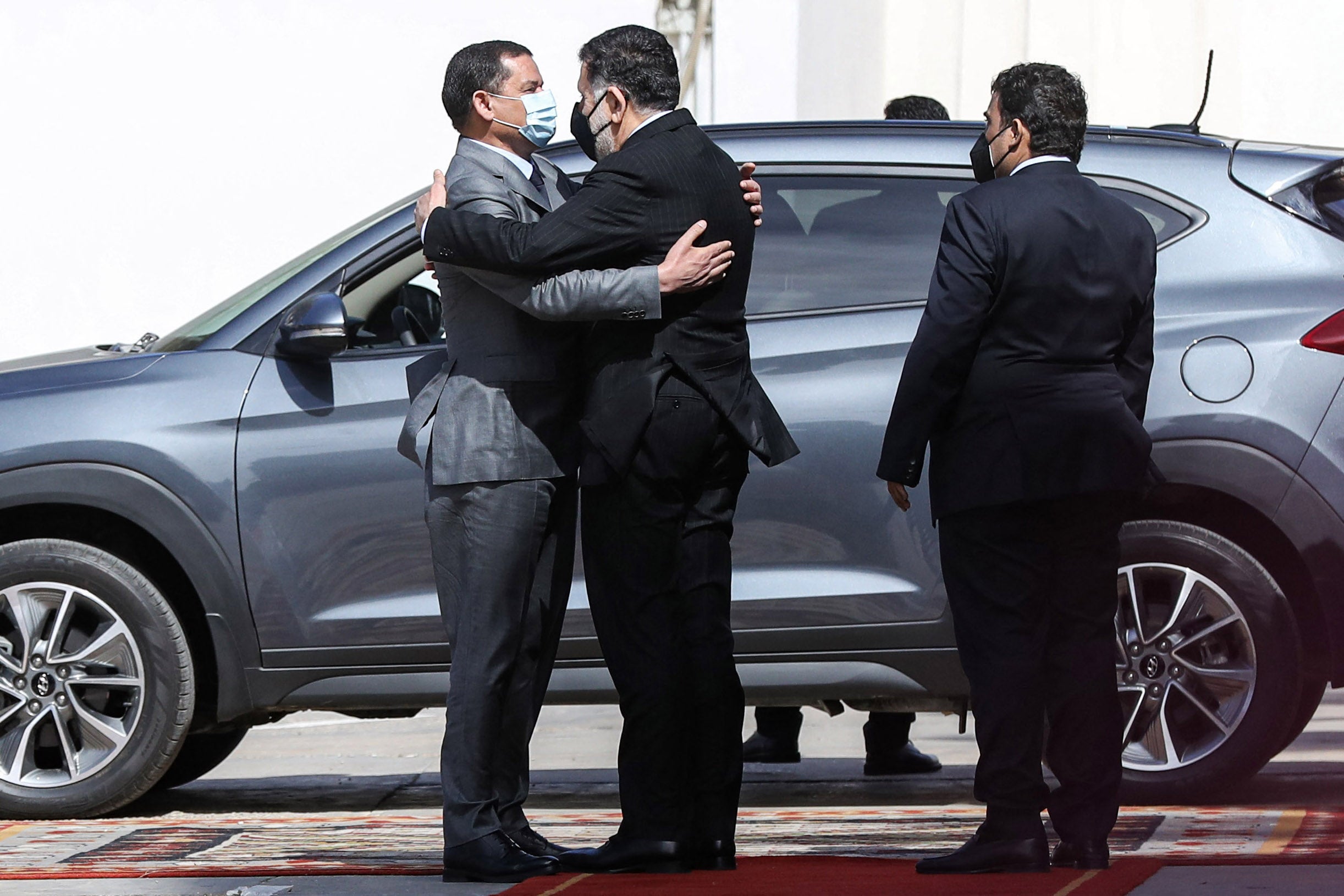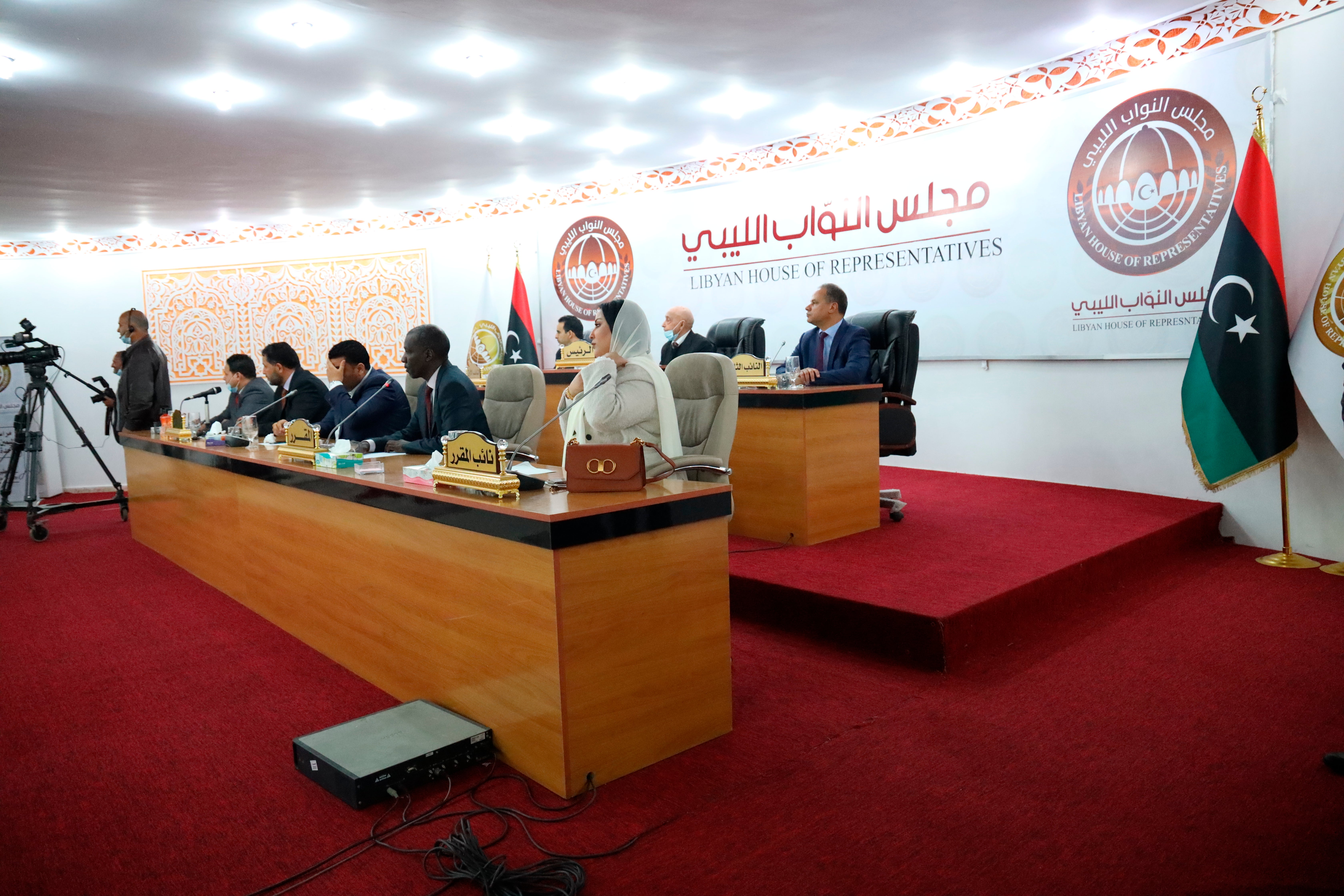Libya: A peaceful transfer of power heralds a precarious new phase
The peaceful transition of power is a rarity – Libya’s political future remains fragile

A new Libyan government overseeing the entirety of the north African nation took power in the capital on Tuesday, formally ending a messy seven-year period during which rival administrations in the east and west claimed authority over the country.
Prime minister Fayez Serraj, head of the former United Nations-recognised Government of National Accord, handed power to interim prime minister Abdul-Hamid Dbeibah in the capital, Tripoli, where the government will oversee the troubled and war-ravaged oil-rich nation until elections scheduled for 24 December.
Mr Serraj, arriving in Tripoli on Monday night from Turkey, met with Mr Dbeibah and Mohamed al-Manfi, the head of a three-person presidency council, for the handover, which came after the new ministers and officials were sworn into office on Monday during a ceremony in the eastern Libyan city of Tobruk.
“You have laid the cornerstone for democracy in the country,” Mr Dbeibah reportedly told Mr Serraj, according to local media. “We are determined to pursue reform, and we will complete what you began.”
After the ceremony, Mr Serraj, the scion of a well-to-do Tripoli family, got into his car with his entourage and headed home.
Read more:
The peaceful transfer of power is a rarity in Libya and the Arab world, whose recent history has been marked by coups, revolutions, and foreign invasions.
In a statement, UN Special Envoy to Libya Jan Kubis called on the new Government of National Unity (GNU) to “rapidly face the numerous challenges that the Libyan people have to face, improve living conditions and basic services, and prepare the country for the holding of national, inclusive elections”.
Prospects for the new government, shaped in a months-long process of selection overseen by the UN, are dicey. Libya’s administration may be formally unified, and that may help boost oil and gas production along with exports that have lagged over legal and security concerns.
But Libya’s security architecture remains a perilous patchwork. Armed militias allied with Islamist-leaning political groups and local power centres hold sway in the country’s west, and renegade commander Khalifa Haftar, backed by the United Arab Emirates and Egypt, continues to control the country’s east.
The two camps fought ferociously in a round of fighting that saw Mr Haftar’s forces expelled from the capital and its surroundings, and on the verge of even graver defeat at the hands of armed groups backed by Turkey, until international mediation efforts last year led to an October ceasefire deal.
Analysts calculate that the battlefield stalemate may help propel the two camps and their foreign sponsors to take their differences into the political arena.
In an effort to draw competing security forces together, the UN is sponsoring a series of talks between the leaders of the rival armed groups. They met for an eighth round of talks on Sunday and Monday in the Libyan city of Sirte, where they discussed the removal of Russia, Syrian and Sudanese foreign fighters from the country, the reopening of roads, and demining operations.
The United States also reportedly convinced Turkey to remove hundreds of Syrian fighters deployed to help Ankara’s allies in Libya.
Libya, a vast oil-rich mostly desert nation on the Mediterranean’s southern edge, has been battered by chaos and war since the toppling of Muammar Gaddafi in a Nato-backed armed uprising a decade ago. The lawlessness has led to surges in irregular migration, human rights abuses, battlefield atrocities, and blatant meddling by foreign powers.

It has also created openings for armed jihadi groups including al-Qaeda affiliates and the regional branch of Isis.
In his statement, Mr Kubis called for Libyan authorities to push for “national reconciliation, transitional justice, equality and empowerment of women and youth”.
Many international companies and foreign diplomatic missions in Libya have shuttered in recent years over security worries. On Wednesday, Tunisian president Kais Saied is scheduled to visit Libya for the first time in an effort to show its eastern neighbour “support for the democratic transition process”, according to a statement.
Join our commenting forum
Join thought-provoking conversations, follow other Independent readers and see their replies
Comments